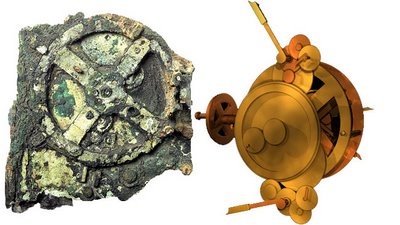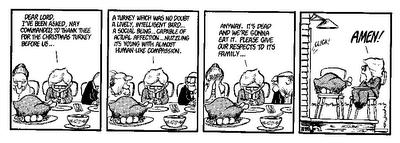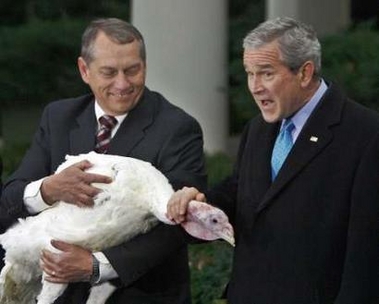The bipartisan Iraq Study Group plans to recommend withdrawing nearly all U.S. combat units from Iraq by early 2008 while leaving behind troops to train, advise and support the Iraqis, setting the first goal for a major drawdown of U.S. forces, sources familiar with the proposal said yesterday.
The commission plan would shift the U.S. mission in Iraq to a secondary role as the fragile Baghdad government and its security forces take the lead in fighting a Sunni insurgency and trying to halt sectarian violence. As part of major changes in the U.S. presence, sources said, the plan recommends embedding U.S. soldiers directly in Iraqi security units starting as early as next month to improve leadership and effectiveness.
The call to pull out combat brigades by early 2008 would be more a conditional goal than a firm timetable, predicated on the assumption that circumstances on the ground would permit it, according to the sources, who spoke on the condition of anonymity because the commission's report will not be released until next week. But panel members concluded that it is vital to set a target to put pressure on Iraqi leaders to do more to assume responsibility for the security of their country.
"It's really about transitioning from a combat to a support role, and basically making very clear that this is no longer an open-ended commitment and we're going to get this done whether the Iraqis like it or not," said one of the sources. "Everybody understands that we're at the end of the road here."
The choice of early 2008 as a goal could also, intentionally or not, change the nature of the debate over the war at the height of the U.S. presidential primary season. If the commission's plan is successful, the war might recede as an issue, as many strategists in both parties hope. But if U.S. commanders do not meet that goal, or if they do but violence only escalates, it may inflame the struggles for both parties' nominations.
You've got to love the marketing spin on the panel's part--it is all about transitioning from a combat to a support role. It is about changing the U.S. role from fighting the insurgents to training the Iraqi security forces so they can fight the insurgents. And the leak of the timetable is meant to “put pressure on Iraqi leaders to do more to assume responsibility for the security of their country.” It is all about forcing the Iraqis to stand up so that we can stand down. Of course, the ulterior motive that no one wants to talk about is the 2008 presidential elections. If U.S. troops are still fighting in Iraq come November 2008, you can bet that the war will become an even bigger liability for the Republican Party, since it was the Republican Party under President Bush that got us into this war in the first place. It is especially interesting how Iraqi Prime Minister Nouri al-Maliki said that he believed Iraqi security forces would be ready to take full control of the security in Iraq by June 2007. If Maliki's government can take control of Iraq's security by June 2007, this gives the U.S. six months to a year for initiating a withdrawal timetable for removing combat troops from Iraq just before the two political parties go into their conventions. Of course, there are some big "ifs" here; if Maliki's government can maintain control of security in Iraq; if anti-American Shiite cleric Moqtada al-Sadr is willing to accept this, knowing how weak Maliki is with a fractured Iraqi security force whose soldiers are more loyal to tribal leaders rather than to the state, while Sadr himself has been growing powerful in both political and military terms; if the long-simmering ethnic violence and hatred can be contained and reduced between the Shiites and Sunnis. It is almost like there is some serious political timing for the Republican Party's benefit--first Maliki says that Iraq can stand up in maintaining security in the country, which allows the Iraq Study Group to leak a story recommending the U.S. to stand down and withdrawal combat troops before the 2008 presidential elections.
Now we come to this Washington Post story, titled Bush Rejects Troop Reductions, Endorses Maliki:
AMMAN, Jordan, Nov. 30 -- President Bush on Thursday dismissed calls for U.S. troop withdrawals from Iraq as unrealistic, saying American forces would "stay in Iraq to get the job done, so long as the government wants us there."
Speaking after a summit meeting here with Iraqi Prime Minister Nouri al-Maliki, Bush also offered a strong endorsement of the embattled Iraqi leader, calling him "the right guy for Iraq."
[....]
In the news conference that followed, Bush sought to preempt a growing clamor to start a phased withdrawal of U.S. troops from Iraq, a proposed policy shift that has gained traction as a result of the Nov. 7 congressional elections and that is expected to be endorsed by the Iraq Study Group, a bipartisan commission headed by former secretary of state James A. Baker III and former representative Lee H. Hamilton (D-Ind.). The United States has more than 140,000 troops in Iraq.
Although the president was not asked directly about the panel's recommendations, which will be made public next week but which were partially leaked to reporters late Wednesday, he did say that "this business about graceful exit just simply has no realism to it whatsoever."
Later, national security adviser Stephen J. Hadley told reporters aboard Air Force One that Bush would start making changes in his Iraq policy soon after receiving the study group's recommendations and the reports of other high-level review panels. "There is a real sense of urgency, but there is not a sense of panic," Hadley said, according to the Reuters news agency.
We've got some doublespeak coming out of Washington here. The Iraq Study Group is leaking recommendations that the Bush administration should start pulling out U.S. troops before the 2008 presidential elections start up, or risk a Republican "thumping" in the White House, while President Bush is saying that the U.S. will stay in Iraq "to get the job done, so long as the [Iraqi] government wants us there." In other words, Bush is rejecting the Iraq Study Group's recommendations, at the possible expense of having the Republican Party losing the White House in 2008. Even more so, the Iraq Study Group is going along with the Bush administration’s continued insistence on staying in Iraq until the U.S. “gets the job done.” The Iraq Study Group’s call to pull out U.S. combat troops in 2008 is a “conditional goal” rather than an actual timetable. You have to wonder who is going to determine the metrics for achieving this conditional goal, which would allow the U.S. to start pulling out the troops from Iraq—President Bush? To make matters worst, this whole ISG recommendation for a withdrawal in 2008 is conditional--based on lofty assumptions the circumstances in Iraq will shift perfectly in the U.S. favor. In other words, the sun, moon, stars, and planets will need to align with the Bush White House before the troops can be withdrawn from Iraq. And finally, while this fracas is going on, National Security Advisor Stephen Hadley is also talking from both sides of his mouth, claiming "there is a real sense of urgency" regarding Iraq--but don't panic! Talk about contradictions here--these guys can't even keep their story straight!
I think now is a good time to start panicking....
















